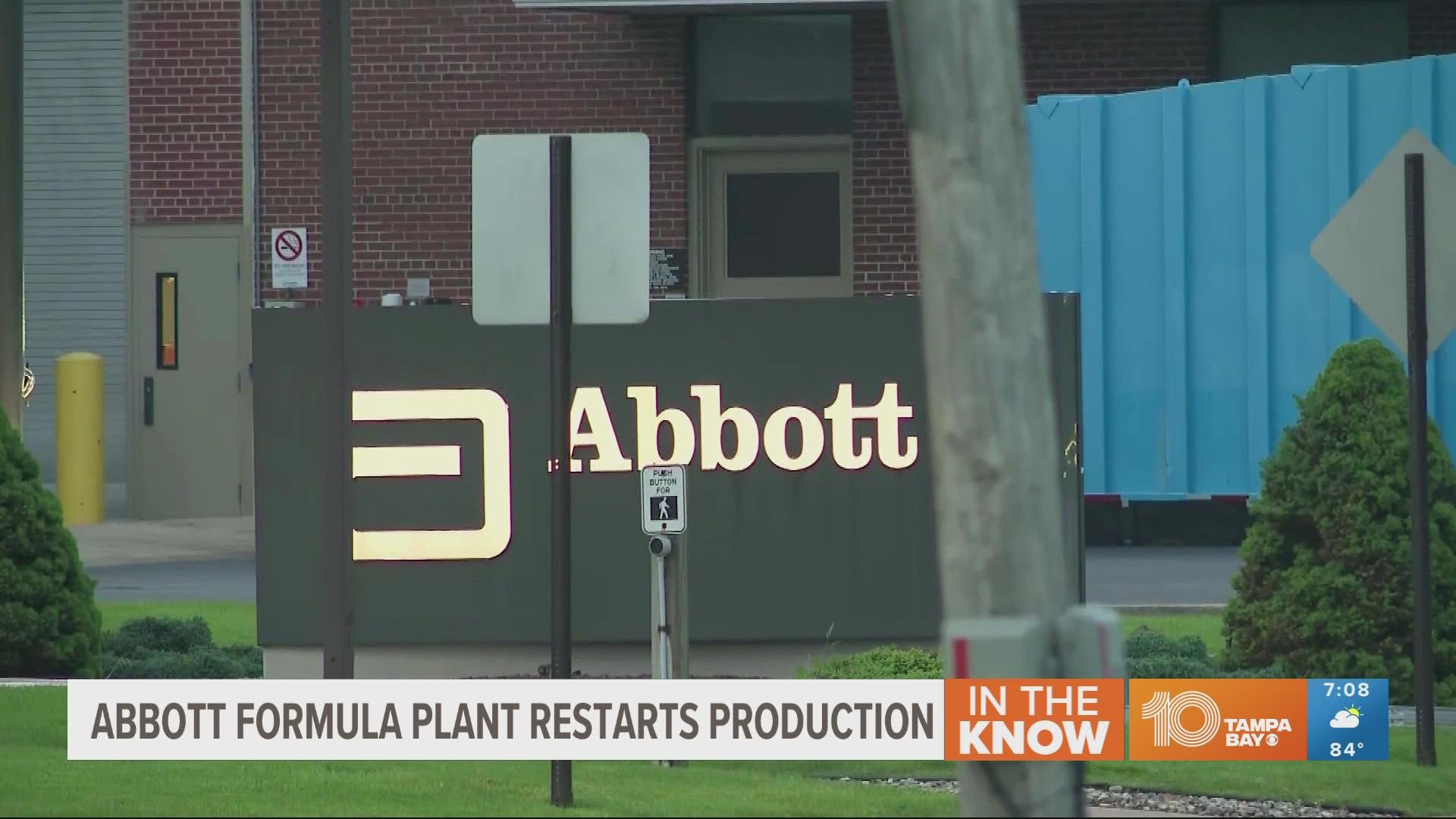ST. PETERSBURG, Fla. — The baby formula shortage that affected many households across the country and especially in Florida earlier this year is slowly bouncing back, but, according to reports, parts of the country will still feel effects until spring.
The London-based news agency, Reuters, released an exclusive report after speaking with the current largest infant formula manufacturer, Reckitt Benckiser.
The manufacturer, known for its brand Enfamil, told Reuters that the shortage is likely to "persist" until next year.
"I suspect that will persist to some degree until the spring resets," Robert Cleveland, Reckitt senior vice president of North America and Europe Nutrition, told the outlet. "When we talk about the crisis we talk about the condition of the shelves and how they appear to consumers, and how well that shelf meets their needs."
The British company took over the market as the former largest U.S.-based manufacturer, Abbott, tolled with back-to-back recalls.
In Florida, the shortage outpaced the national average in May causing many retailers to have limits on how much baby formula people could purchase.
The baby formula industry is particularly vulnerable to disruptions because a handful of companies supply almost the entire U.S. supply.
Industry executives say the constraints began last year as the COVID-19 pandemic led to disruptions in ingredients, labor and transportation. Supplies were further squeezed by parents stockpiling during lockdowns.
Then in February, Abbott recalled several major brands and shut down its Sturgis, Michigan, factory when federal officials concluded four babies suffered bacterial infections after consuming formula from the facility. Two of the infants died.
When FDA inspectors visited the plant in March they found lax safety protocols and traces of the bacteria on several surfaces. None of the bacterial strains matched those collected from the infants, however, and the FDA hasn’t offered an explanation for how the contamination occurred.
For its part, Abbott says its formula “is not likely the source of infection,” though the FDA says its investigation continues.
The Associated Press contributed to this report.

